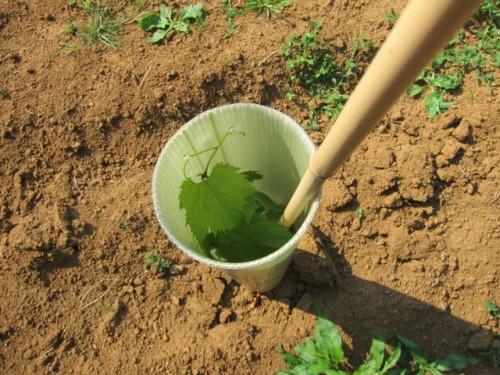 One morning last month a friend and I took a train from London to the city of Gloucester, in southwestern England. The next morning after breakfast we started walking on the Cotswold Way, one of the UK’s National Trails.
One morning last month a friend and I took a train from London to the city of Gloucester, in southwestern England. The next morning after breakfast we started walking on the Cotswold Way, one of the UK’s National Trails.
On its way to Bath, 60-some miles away, the trail passes through quiet beech forests, open cow pastures, and fields of grains, with a sprinkling of prehistoric sites and an awful lot of disused quarries, the source of the lovely, creamy limestone that buildings in the region are known for.
At times I wondered why I had chosen to spend a week slogging up and down hills on aching feet. But moving through the countryside at ground-level and a snail’s pace is great. You notice things.
Late in the second day we were circling around the west of Stroud, one of the Cotswolds’ many ridiculously picturesque towns. We passed through a gate into yet another field. It was on a gentle south-facing slope above the River Frome.
But rather than barley or cows, this field was growing white plastic tubes. Each was planted with a bamboo stake through the middle. I peered into one—and saw something that looked suspiciously like a grape leaf. Fresh, green leaves and curling tendrils poked out of the tops of other tubes. I spotted a blue label on one of the stakes and picked my way over to it. Most of the label was in German, but the biggest word on it was clear: Chardonnay.
The reason for a vineyard among the cow pastures? Climate change. Growers are betting that warmer temperatures mean Chardonnay will do well in England. A story in the Guardian this spring explained that, as temperatures rise, more and more growers are planting grapes that do well at slightly higher temperatures than the cold-climate grapes that have been grown for longer in the UK.
Climate change was on our minds a lot that week. July 2013 turned out to be the third warmest month recorded in the last century in the UK. Never again will I mock a British heat wave; it turns out that 86°F is quite uncomfortable if it is humid and you are outside all day. And it wasn’t just there. In central Europe, temperatures in some places went above 100°F. When you think of Salzburg, you should think of the Alps and Mozart and people in velvet and wigs—and in late July a record was set for the town, at 101.5°F.
I often think of climate change in terms of vast events. Hurricane Sandy, the rising waters of Bangladesh, the melting of the Arctic sea ice. But it’s also creeping in around us, as farmers make predictions about what crops will thrive in their fields and heat waves come to countries without air conditioning. (None of the places I stayed even offered fans.)
Toward the end of that day we climbed through another hot field of a bright green crop that looked a lot like maize, or what Americans would call corn. That wasn’t on my mental list of British crops. Oats, beans, barley, yes; maize, not so much. But our host that night confirmed that was what we’d seen.
It turns out there are a lot of reasons for the rise of maize in the UK. Some new varieties grow better there. There’s more capacity for processing it into silage. And, you guessed it–the range where maize grows is shifting north. At this point, it’s hard to pin down precisely what the weather is going to be like in the future in any one place. But it looks like farmers are already betting it’ll be warmer.
Photo: Helen Fields
Sauvignon Blanc would probably be good here as well. God help us all if they start growing a really world class Rioja just outside of Slough. Maybe I should invest in British companies that install air conditioning.
Two questions: How did you guys decide where to walk? it sounds slow and delightful, what a change of pace. Interesting about the climate change side of it.
Second question: Why do I know that song as “oats, *peas,* beans, and barley grow”?
Climate change may be improving the possibility of good wines grown in Britain but it’s not new to grow grapes here – the Roman’s had vineyards 1600 years ago: http://www.independent.co.uk/news/science/veni-vidi-viticulture–remains-of-roman-vineyards-found-in-uk-738723.html
Lovely summer for walking though!
@Lila – I looked at the list of national trails and thought, Cotswold Way, that sounds picturesque. And I have no idea! I saw a ton of oats-peas-beans links when I was trying to find a version on youtube, and I’ve only ever heard it the other way.
@Peter – That’s interesting, thanks! The article you link to mentions that Britain’s climate was a bit warmer in Roman times.
Helen’s report is like a postcard from the future. And maybe from the past as well: My English grandmother taught me to sing “Oats, peas, beans, and barley grow, Oats peas beans and barley grow, Do you or I or anyone know, How oats, peas, beans, and barley grow?”